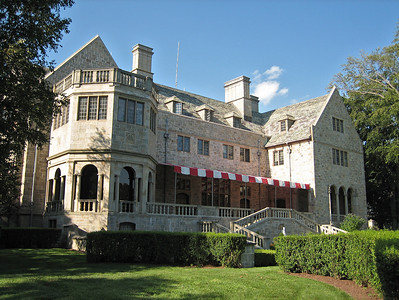Because I am going to disagree almost completely with President Nemec, I need to establish my credentials. This will sound like boasting, but it’s not. This is my 41st year of teaching at Fairfield and my 65th year of uninterrupted connection with the Jesuits in one way or another. I have written ten books on one aspect or another of the Catholic tradition, four of them award-winning, and I was the 2020 recipient from the Association of Catholic Colleges and Universities of the Monika Hellwig Award for contributions to the Catholic Intellectual Tradition. I am a past president of the Catholic Theological Society of America, the largest association of theologians in the world. So I know whereof I speak. The president of any university is in a sense the symbol of the unity of the enterprise. But that does not mean he or she is always right, or indeed that he is sufficiently well-informed to speak on a particular topic.
President Nemec invokes the notion of institutional neutrality to justify removing the Black Lives Matter poster from the Counseling Center Window. But institutional neutrality has absolutely no place in a Jesuit and Catholic University. In some schools with no religious tradition it may be that the term is somewhat appropriate, because it is indicating the institution’s commitment to freedom of speech, to the right and responsibility of the university to encourage debate. Of course, Fairfield University honors that same commitment, but the mistake is to think that the only way to do this is to practice institutional neutrality. It is perfectly possible, in fact required, that a Jesuit and Catholic school proclaims a set of values that grow out of the intellectual and religious tradition, that in no way impede freedom of expression. And this means that the institution qua institution, not just individual voices within it, sometimes has the responsibility of taking stands on ethical and even political issues. Claiming neutrality is always in effect siding with the status quo, and the status quo of America is racist. Fairfield
has to commit to becoming an anti-racist community and, by the way, anti-anti-racism is nothing other than plain racism, and it has no place here. It is of its nature, hate speech, and that is something no academic institution should tolerate.
The Catholic tradition begins with an understanding of the human person as always already in a set of relationships, as part of a community and a world with shared responsibilities for the common good. When President Nemec proclaimed himself a classical liberal, he identified with a philosophical tradition that stresses the priority of the individual over the community, which is itself merely a social construction to protect individual freedoms. Where this tradition understands the common good as the utilitarian “greatest good of the greatest number,” adding up all the individual goods, the Catholic tradition offers a very different view. In Catholic thinking the common good is the good of the whole, measured by the way in which the community pays special attention to the needs of its most vulnerable members. In our country today, white privilege can never be an expression of the common good, while recognizing that Black lives matter is essential to caring for the common good.
At Fairfield University we all have the right to express our opinions freely, short of crossing the line into hate speech. That means that we have to tolerate views with which we may be in profound disagreement. The university has to protect that freedom of expression. But it does so as a place built on a religious tradition that makes clear that all people have equal dignity, that individual freedoms only work in the context of community responsibility, and that the world’s poor and the fate of the earth are our moral priorities. If someone disagrees with this, short of hate speech, they have the right to express themselves. But they do not have the right to claim they are in sync with the mission and identity of the University.
Why, then, would President Nemec want to invoke institutional neutrality? What would be the value that would outweigh the honest recognition that a Catholic and Jesuit school should be working to change the world for the better, not just reflecting the values of an increasingly dysfunctional world? Recent events here at Fairfield seem to suggest that institutional neutrality is a cover for avoiding offending “certain people.” But if you stand for anything, you will offend some people. Maybe even potential donors or powerful alums. But you will offend a whole lot more if you kowtow to the fear of offending the powerful few. That seems to be what has happened here in this past couple of weeks. In a Jesuit and Catholic school, even a “modern” one, institutional neutrality is distasteful and antithetical to the mission and identity of our academic home. It’s time that senior leadership got in line.
Paul Lakeland is the Aloysius P. Kelley, S.J. Professor of Catholic Studies and the Director of Fairfield’s Center for Catholic Studies


Leave a Reply